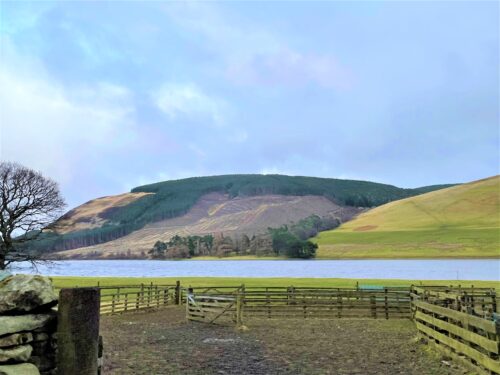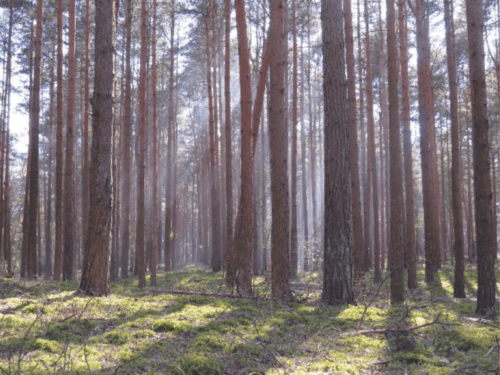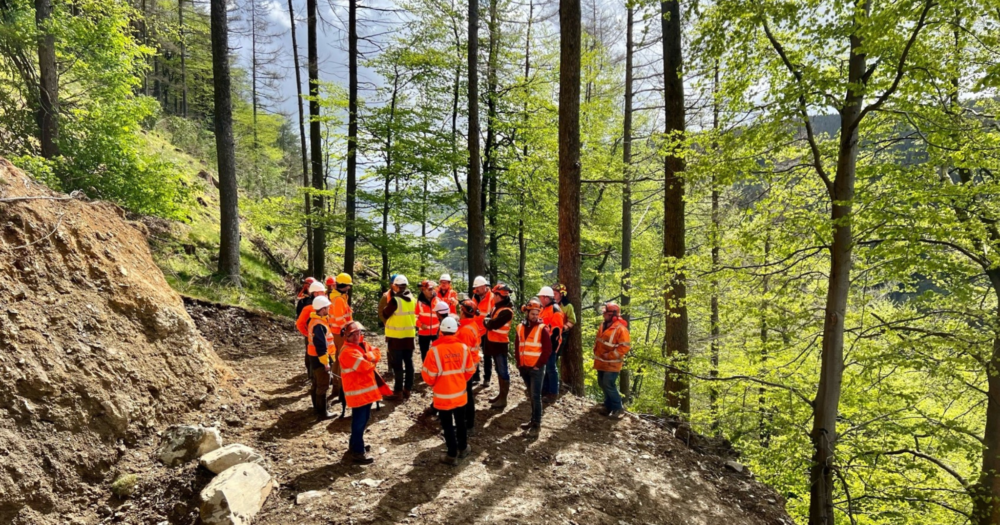Why Manage a Woodland?
Woodland management plays a crucial role in preserving and enhancing the natural environment in the UK. By carefully tending to our woodlands, we can ensure the health of our ecosystems, promote biodiversity, and provide numerous benefits for both wildlife and humans.
By recognizing the value of our woodlands and implementing sustainable management practices, we can ensure the long-term health and vitality of these precious ecosystems, as well as ensuring a sustainable future.
We undertake any aspect of woodland and forestry management in both rural and urban settings, from species as diverse as chestnut coppice to Sitka spruce and everything in-between, helping our customers to achieve their objectives and maximise their property’s potential.
Case Studies

Managing a Sustainable Productive Forest
Tilhill Forestry was engaged to carry out the forest design, roading, tree planting, adjusting or adapting the tree species, on-going forestry management and maintenance, grant application process and timber harvesting on behalf of the client.
Read More
Healing an Under-Managed Woodland
The results of under-management included limited growth of the trees as they competed with each other for light and nutrients. Tilhill Forestry were engaged to manage the woodland to its full potential both in terms of timber value and environmental credentials.
Read MoreKey Benefits of Managing a Woodland
Woodlands can only deliver their benefits to the environment, society and for individuals if they are healthy and resilient. Actively managing your woodland is the way to ensure it remains healthy and resilient to threats.
Professional woodland management by our managers helps to ensure proper protection of the environment and of the environmental services arising from woodlands across the country.

Biodiversity Conservation
Sustainable forestry practices, such as selective tree felling and coppicing, help create diverse habitats for a wide range of plant and animal species. By opening up the canopy and allowing more sunlight to reach the forest floor, it encourages the growth of various plants, including wildflowers and shrubs. These plants then attract a plethora of insects, which in turn provide food for birds, small mammals, and other wildlife.

Sustainable Timber
Woodland management also ensures a sustainable supply of timber, which is a vital resource for various industries in the UK. By carefully selecting and harvesting trees, woodland owners can maintain a healthy forest while also meeting the demand for timber products. This sustainable approach not only supports the local economy but also reduces the need for importing timber from outside of the UK.

Climate Regulation
Forests are natural carbon sinks, absorbing carbon dioxide from the atmosphere and storing it in their biomass. By managing forests in the UK, we can enhance their capacity to sequester carbon and thus mitigate climate change. Through sustainable forest management practices such as tree planting and selective logging, we can maintain healthy forests that continue to absorb carbon and regulate the climate.

Economic Opportunities
Woodland and forest management in the UK creates economic opportunities and provides employment in rural areas. Sustainable timber harvesting, ecotourism, and recreational activities like hiking and camping all contribute to the local economy. By managing forests responsibly, we can strike a balance between economic development and the preservation of natural resources.
Our Specialist Skills
In addition to on-going forest management, Tilhill Forestry can also undertake specific one-off projects under contract. Such projects could include anything listed below. We specialise in:
- Planting and woodland creation.
- Protection and maintenance of young trees including deer management.
- Development of short rotation forest and coppice.
- Forest roading and other infrastructure.
- Environmental Impact Assessments (EIA).
- Digital mapping and surveying.
- Preparation of plans and production forecasts.
- Grant Aid applications in England, Scotland and Wales.
- Forest certification.
Resources
Why woodland management matters
Read government guidance on how sustainable woodland management can make your wood more resilient to the threats like climate change, pests, and diseases.
Learn MoreWays to manage your woodland
Read government guidance on the different ways you can undertake woodland management, activities can range from controlling mammal populations to limit damage to trees and removing invasive plants.
Read MoreWoodland Management Matters
This short animation introduces the Forestry Commission’s Woodland Management Matters campaign to help trees and woodlands deliver a wide range of benefits.
Watch Now


